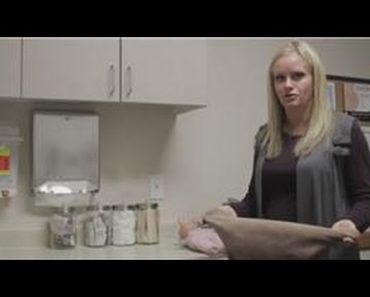Breast milk is the exclusive source of nourishment for your baby for the first six months (1). Since breast milk is vital for the baby’s growth, many mothers may wonder — is my baby getting enough milk? It may not be possible to tell the precise quantity of breast milk your baby consumes if they feed straight from the breast. Nevertheless, there are other ways to determine if your baby is receiving sufficient breast milk.
Read this post to know about the signs that usually indicate that your baby has adequate breast milk to consume and how to ensure you can provide a sufficient milk supply for your little one.
What Are The Signs Your Baby Is Getting Enough Breast Milk?
If your baby consumes enough breast milk during their feedings, it will be visible as signs of growth and development. Here are some common signs that indicate sufficient breast milk consumption (2):
- Weight gain: Your baby may lose a few pounds from their birth weight in the first week, which is normal (3). Eventually, they start to gain weight and develop at a regular pace.
- Growth spurts: Babies who receive sufficient nutrition show visible growth spurts. The initial growth spurts occur within seven to ten days of life, followed by another one within three to six weeks (4)
- Sleeping through the night: Most babies wake up frequently because they are hungry. Well-fed babies are more likely to sleep through the night.
- Wet diapers: “How many wet diapers should a newborn baby have?” is a reasonable question to ask. Though it varies for every baby, on average, a newborn baby goes through around six or more wet diapers per day and has bowel movements after every meal (5).
- Swallowing: You can hear your baby swallowing the breast milk and see them suckling the nipple while feeding. Babies usually leave the breast on their own when satisfied.
- Poop color: As the baby starts to digest the breast milk, the color of their poop becomes lighter, and the consistency is runny.
What Are The Signs Your Baby Is Not Getting Enough Breast Milk?
Certain problems may occasionally arise while breastfeeding the baby, which may interfere with their feeding routine. The following are some signs that your baby is not getting enough breast milk (6):
- Lethargic and sleepy baby. Babies usually feed every three to four hours (7). Unsatisfied babies may miss their feeds and sleep for longer periods without feeding.
- Short nursing sessions. The normal duration of a newborn’s feeding ranges between 20 and 45 minutes (8).
- Hungry after feeding. Your baby sucks their thumb or fingers and does not seem satisfied after their feeding session.
- Fewer wet diapers and dark stools. As your baby starts to digest the milk, they will have at least three to four dirty nappies in a day, and their poop will be mustard-yellow (9)
- Underweight. Your baby does not show signs of growth as per the general growth charts or is underweight.
- You cannot feel the milk filling the breasts after feeding. If you do not feel your breasts filling up after each feeding session, it could mean the milk is not getting emptied or the milk supply is less.
- Full breasts after feeding. The hardness of the breasts does not decrease at the end of a feeding session.
What Happens If The Baby Does Not Get Enough Breast Milk?
Breast milk contains all the nutrients necessary for the baby’s growth. It also contains antibodies that help fight infections and strengthen their immune system and probiotic factors that reduce the risk of allergies, obesity, or asthma. Thus, if your baby does not get enough breast milk, they may have a slower growth rate, weak immune system, and be prone to various diseases (10).
Additionally, not expressing enough breast milk can be uncomfortable for the mother, resulting in painful, hard breasts. Hard breasts may also prevent the baby from latching on correctly (6).
What Should You Do If Your Baby Gets Insufficient Breast Milk?
If you think there may be some problem that prevents your baby from consuming enough breast milk, talk to your pediatrician or a breastfeeding specialist. You could also try hand-expressing your breast milk to relieve enlarged breasts and feeding it to your baby with the help of a spoon or in a bottle (11).
Breastfeeding is considered to be the most nutritious and safest form of feeding newborn babies. Therefore, it is important to ensure your baby gets enough breast milk for proper physical growth and immunity development. If your baby shows any signs of insufficient consumption, consult your pediatrician.
References:


































